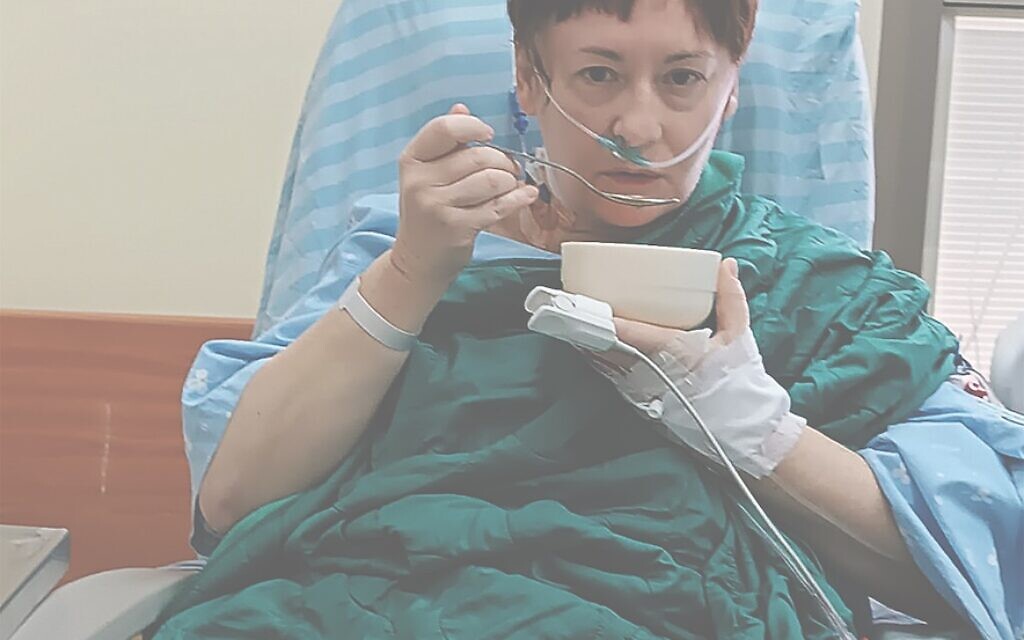SPECIAL REPORT: ‘I dug my family from the rubble… my son died in my arms’
The testimonies of Ukraine’s Jews, many of them Holocaust survivors, have been preserved in a powerful new project
At 5am on the day Russia invaded Ukraine, Irina Zhivolup received a phone call from her only child, 33-year-old Oleksandr, in Kharkiv in the north-east of the country. He was being bombed.
“I jumped up, started yelling to quickly get down to the basement, and then to get out,” she says. However, he was to be no safer with her in Izium, on the Donets River in eastern Ukraine.
A week and a half later, on March 6 2022, a Grad rocket hit the home of Irina’s 82-year-old mother Tamara, where she and Irina, Irina’s son and Irina’s husband and the family dog were all standing.
Get The Jewish News Daily Edition by email and never miss our top stories Free Sign Up
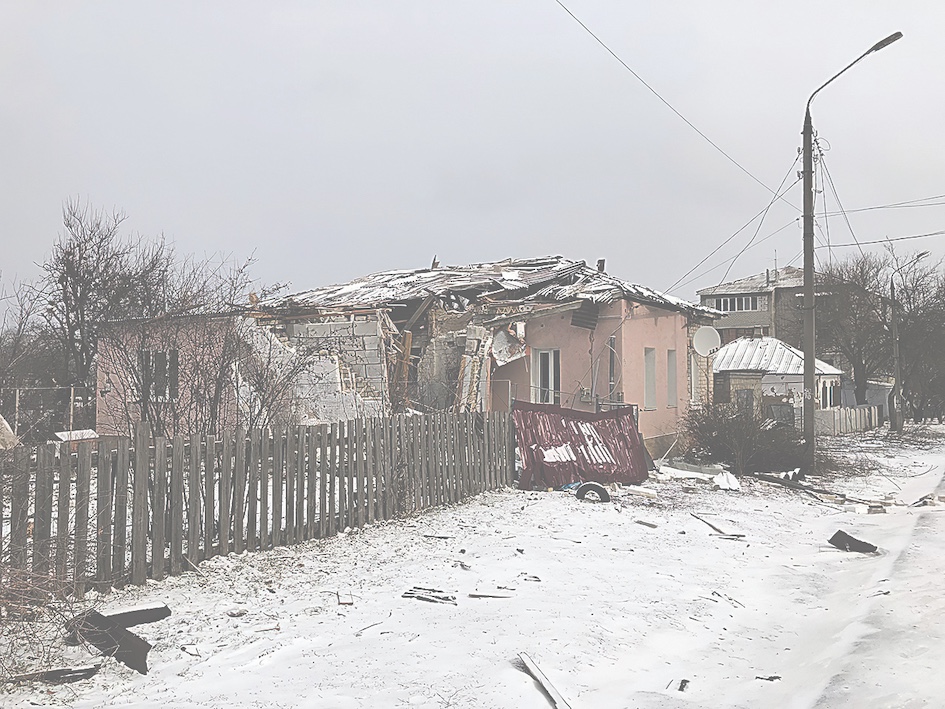
“I dug them out,” Irina says. “I don’t know where I got the strength – head cracked open, all covered in blood, both legs broken. But I managed to pull the beams away. My son died in my arms.”
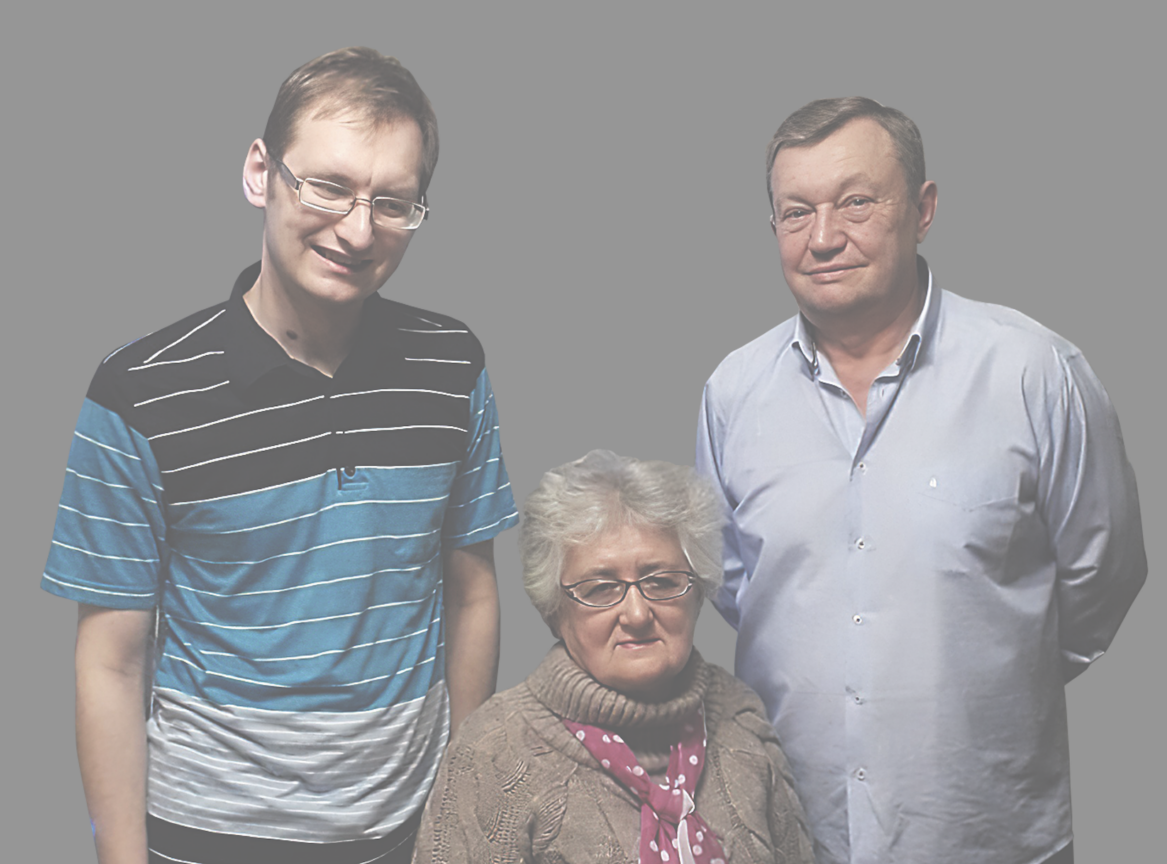
Irina was the only survivor. The 60-year-old notary crawled back into the house – which no longer had a roof or any windows – climbed into bed and put on Oleksandr’s jacket. She stayed there for eight days, in temperatures of -10C, as rockets dropped around the clock and the bodies of her loved ones lay on the doorstep.
The harrowing testimony is just one of 150 stories of Jewish refugees in the days following the Russian invasion of Ukraine that have been preserved so far by the Association of Jewish Organizations and Communities (VAAD) of Ukraine.
The natives of Mariupol, Kharkiv, Bucha, Irpin and Chernihiv survived artillery shelling, bombing, bereavement, evacuation through Russian checkpoints and even Federal Security Service interrogation.
The project is aptly titled Exodus-2022 and, as we celebrate the Pesach story, the thumping echoes of history – ancient and more modern – are impossible to avoid.
“One woman recalled how, on the eve of Passover, she baked matzah with an old Soviet stove and felt she was ‘coming out of Egypt’ for the first time,” says Michael Gold, founder and editor-in-chief of the project.
Another, when the electricity was cut off, used her chanukiah as a lamp to provide enough light for her to give her paralysed mother an insulin shot. A third tells how, after the occupation of Mariupol by the Russians, she had to conceal her Magen David under her blouse for the first time in her life.
“Why didn’t people run away immediately?” says Irina, echoing a question she has been asked many times. “Nobody believed they would level the town like that,” she explains. “They destroyed schools, churches, buildings that had survived both world wars.”
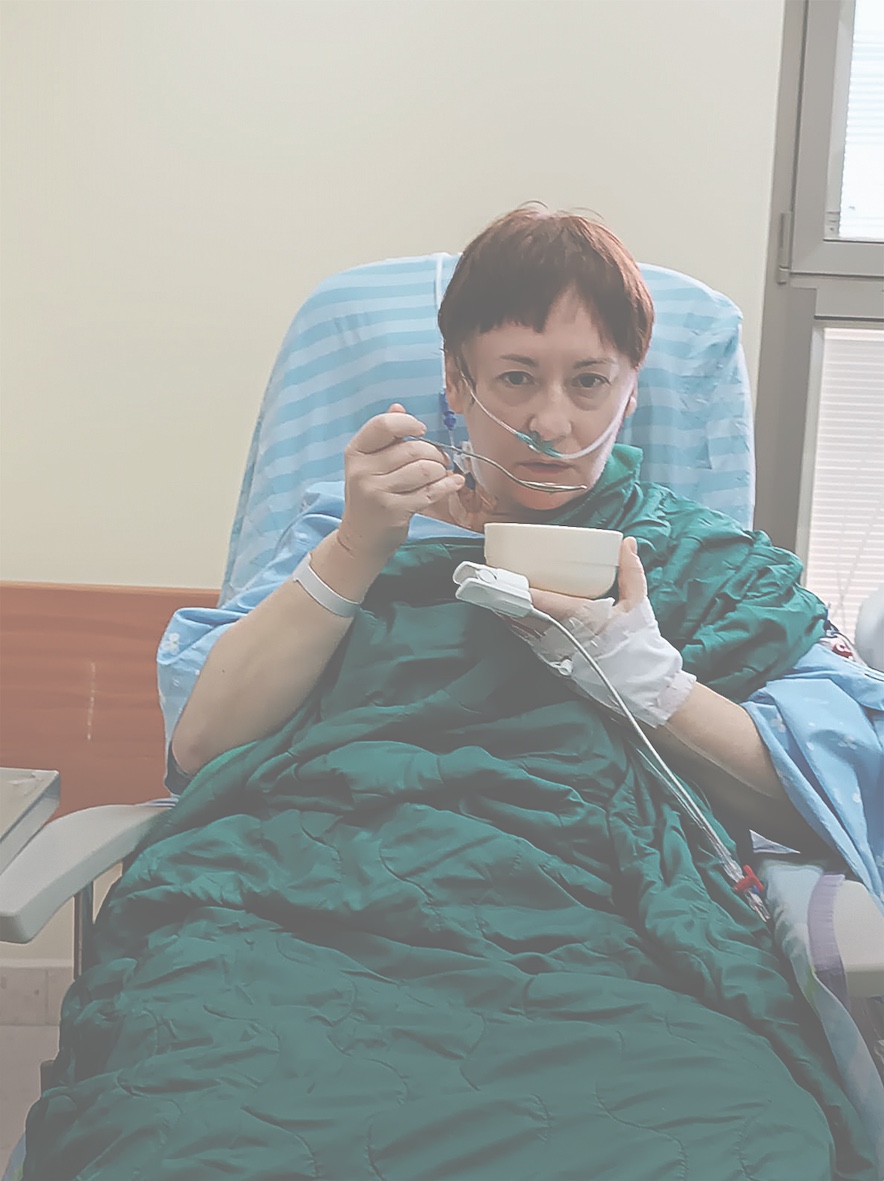
Irina was finally rescued by her neighbours. She urgently needed a doctor, but the hospital had already been attacked. They found a surgeon and a nurse who administered stitches to her leg, with no anaesthetic. She says: “I remember them screaming, ‘Don’t even think about fainting, we have nothing to resuscitate you with.’”
At the end of March, the Russians occupied the city. She says the soldiers from the Donetsk People’s Republic [a Moscow-backed separatist region] – wearing helmets from the Second World War – were “a nightmare”.
“I was lying in bed and one of them came over with a machine gun, his hand on the trigger, and lifted the blanket. He poked my leg, which was in a cast. I thought, ‘Oh my God, he’s going to shoot.’ They proposed to take me to Russia, to Belgorod. The doctor told them, ‘This patient cannot be moved’. He scared them off.”
She describes the soldiers as “a collection of thieves and a gang of beggars”, who looted her bomb-ravaged apartment, taking “even my underpants”. As locals started digging the frozen earth to bury her family, the invaders “started firing on the cemetery from a helicopter”.
At the same time, Irina is able to remember how “the best human qualities were manifested”. Communities set up food banks. Provisions were “even shared with pets”. Meanwhile, the Russians appointed their own mayor, a collaborator from Irina’s apartment complex whom she has known since childhood. He was a former police officer, who got sacked from the narcotics department.
“It looks like the person who was supposed to fight against drugs was distributing them himself,” said Irina before the liberation of Izium in September 2022. “They promised to build a garden city”, she added, “but can’t even keep the lights on.”
The stories of the ‘double survivors’ – those who lived through the Holocaust before having to flee the Russians 80 years later – are achingly poignant.
The lives of the elderly parents of Ukrainian actor Yevhen Chepurniak have been bookended by evacuations. Mila and Samuel – who have a combined age of 187 – had barely left their apartment in Dnipro for years. He has one prosthetic limb and she uses a walking frame.
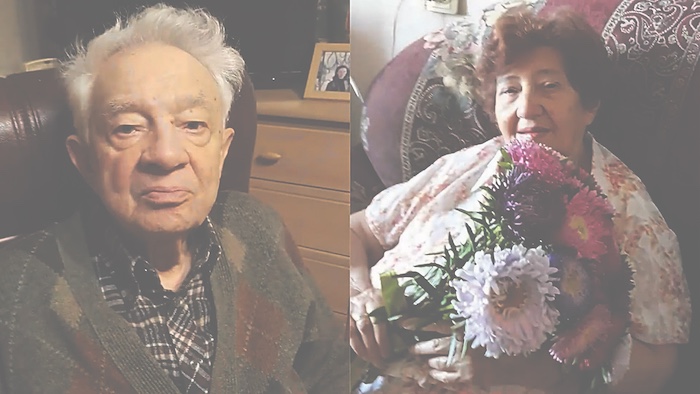
But in March 2022, they had no choice when a 5am explosion blew out their windows. Yevhen gave his parents sleeping pills for the journey to Lviv, but they still stayed awake throughout the night.
“Recording the distinctive accounts of Jewish refugees amid one of the most poignant episodes in the recent narrative of Ukraine’s Jewish community holds profound significance. In the years to come, these testimonies will endure as invaluable relics of the period,” says Victoria Godik, a VAAD board member who is involved in the project.
The 21st century exodus inevitably evoked old traumas. Mila remembers how, in 1941, she rode a cart to the evacuation train with a cat and a dog running after them. But the Germans sent an assault force and they had to run again. They then travelled on the roof of a train and had to jump into corn fields when the shelling started. They arrived in Baku before making their way to Kokand (which today is in Uzbekistan).
Samuel, born in 1928, recalls as a 13-year-old in 1941 falling behind a line of fellow Jews being taken by the Nazis to be shot. They made it on foot to Kizlyar, in Dagestan, sleeping in haystacks and surviving on water taken from a river with corpses flowing by. In their latest exodus, they made it from Lviv to Warsaw and on to Israel.
“Many interviewees said that during the evacuation they felt like they were watching a World War II movie, but in 3D and with themselves in the lead role,” says Gold, who is also editor-in-chief of the Ukrainian-Jewish newspaper Hadashot. He embarked on the project to document “a watershed moment in the modern history of Russian-speaking Jewry”.
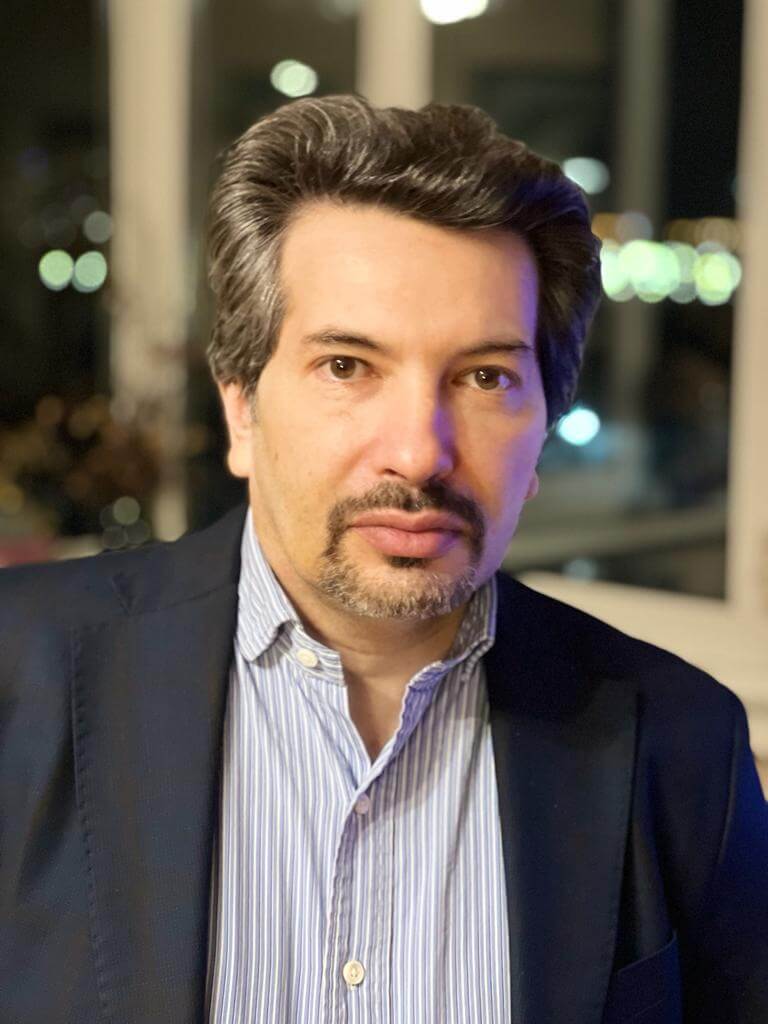
“For the first time since World War II and the establishment of the State of Israel, tens of thousands of Jewish refugees emerged in the heart of Europe,” he says. “The blood of Jewish refugees is not redder than that of others. However, the official objective of the Russian ‘special operation’ was declared to be denazification and protection of the Russian-speaking population.
“That is why the stories of Russian-speaking Jewish refugees, whose lives were destroyed by the ‘liberators of Nazism’, are especially indicative. These people represented an object of double ‘care’ – both as Jews, for whom Nazism is the equivalent of absolute evil, and as Russian-speakers.”
He also notes that the largest Jewish communities in Ukraine were located in the path of the main invasion. Exodus-2022 has become not just an educational tool but a “digital memorial, ensuring that the experiences of these individuals are not forgotten by future generations”. Time was of the essence.
“People gradually displace bitter memories, making room for a new stage of life,” adds Gold, who says he often found himself being floored by the “mildest” testimonies.
“For example, I was impacted by a story about the evacuation train told by a lawyer from Dnipro. There were 18 people in a four-person compartment, including a nursing mum with three kids. They were asked to turn off their phones and to close the blinds, but they could still hear the explosions outside.”
The survivor recalled: “At one point we stopped at some tiny station, and they did not even open the doors because there was no space, not even enough for one more person. It was awful seeing people’s faces plastered against the windows. They were screaming and crying and you watched it.”
Gold says: “The vast majority of our interviewees were not really anticipating a war. And they sacredly believed in ‘Never Again’. That is one of the messages – to show that the world can change in a minute. And you have to be ready.”
By the time Irina was discharged from hospital after 25 days, the dressings had been used up. The doctor gave her two bandages and told her to wash them. She was dragged across the suspension bridge traversing the Donets River on a cart, then through the forest along goat trails. With help from friends in Israel and a Jewish cousin in Toronto, she was given a medical evacuation to Warsaw.
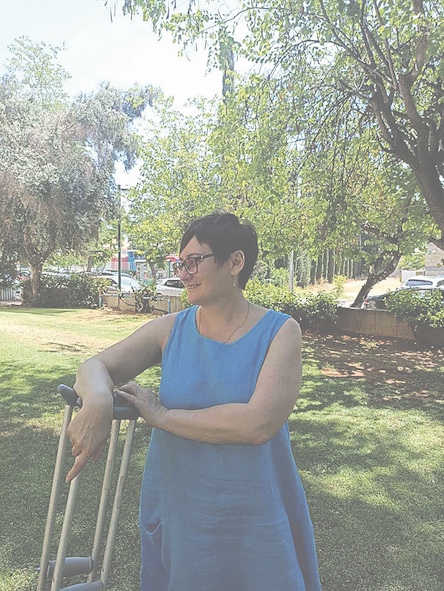
Two months after her testimony was recorded for Exodus-2022, Irina was taken to Israel. Even six months on, hobbling down the streets of Netanya with a stick, splinters were emerging from her wounds. At the end of last year, she graduated from her Hebrew course and survived surgery to replace her aortic valve. October 7 brought war to her doorstep once more.
“We’ve been through much worse,” she says stoically. “Israel has an excellent Home Front Command, so you feel a lot more protected than in Ukraine when we woke up to explosions, not knowing where to run.”
She recalls lying wounded in her house under the Ukrainian night sky reflecting on how one’s life can be upended in an instant. “I understand my grief is a drop in the ocean of the communal grief,” she says, but adds: “For me it was the worst – to be left all alone in this world. My mum had only one child, me. And I had only one child, my son. I lay there and thought that I would never hug my grandchildren. Part of my life was taken away. I didn’t manage to take a single photo with me.”
She now finds herself torn between overwhelming feelings of loss and defiance. “We told ourselves: we have to survive,” she says. “For those who perished – they protected us, and we must rebuild a flourishing Ukraine. I am a life-loving person, so I will fight.”
She finds herself caught between her two homes, and says both the Ukrainian and the Israeli national anthem bring her to tears. “When both wars are over, I will celebrate, both here and there,” she says. “And I might cry.”
For more information, visit http://exodus-2022.org. To make a donation, contact Michael Gold on gold@exodus-2022.org

Thank you for helping to make Jewish News the leading source of news and opinion for the UK Jewish community. Today we're asking for your invaluable help to continue putting our community first in everything we do.
For as little as £5 a month you can help sustain the vital work we do in celebrating and standing up for Jewish life in Britain.
Jewish News holds our community together and keeps us connected. Like a synagogue, it’s where people turn to feel part of something bigger. It also proudly shows the rest of Britain the vibrancy and rich culture of modern Jewish life.
You can make a quick and easy one-off or monthly contribution of £5, £10, £20 or any other sum you’re comfortable with.
100% of your donation will help us continue celebrating our community, in all its dynamic diversity...
Engaging
Being a community platform means so much more than producing a newspaper and website. One of our proudest roles is media partnering with our invaluable charities to amplify the outstanding work they do to help us all.
Celebrating
There’s no shortage of oys in the world but Jewish News takes every opportunity to celebrate the joys too, through projects like Night of Heroes, 40 Under 40 and other compelling countdowns that make the community kvell with pride.
Pioneering
In the first collaboration between media outlets from different faiths, Jewish News worked with British Muslim TV and Church Times to produce a list of young activists leading the way on interfaith understanding.
Campaigning
Royal Mail issued a stamp honouring Holocaust hero Sir Nicholas Winton after a Jewish News campaign attracted more than 100,000 backers. Jewish Newsalso produces special editions of the paper highlighting pressing issues including mental health and Holocaust remembrance.
Easy access
In an age when news is readily accessible, Jewish News provides high-quality content free online and offline, removing any financial barriers to connecting people.
Voice of our community to wider society
The Jewish News team regularly appears on TV, radio and on the pages of the national press to comment on stories about the Jewish community. Easy access to the paper on the streets of London also means Jewish News provides an invaluable window into the community for the country at large.
We hope you agree all this is worth preserving.
-
By Brigit Grant
-
By Laurent Vaughan - Senior Associate (Bishop & Sewell Solicitors)
-
By Laurent Vaughan - Senior Associate (Bishop & Sewell Solicitors)
-
By Laurent Vaughan - Senior Associate (Bishop & Sewell Solicitors)
-
By Laurent Vaughan - Senior Associate (Bishop & Sewell Solicitors)


